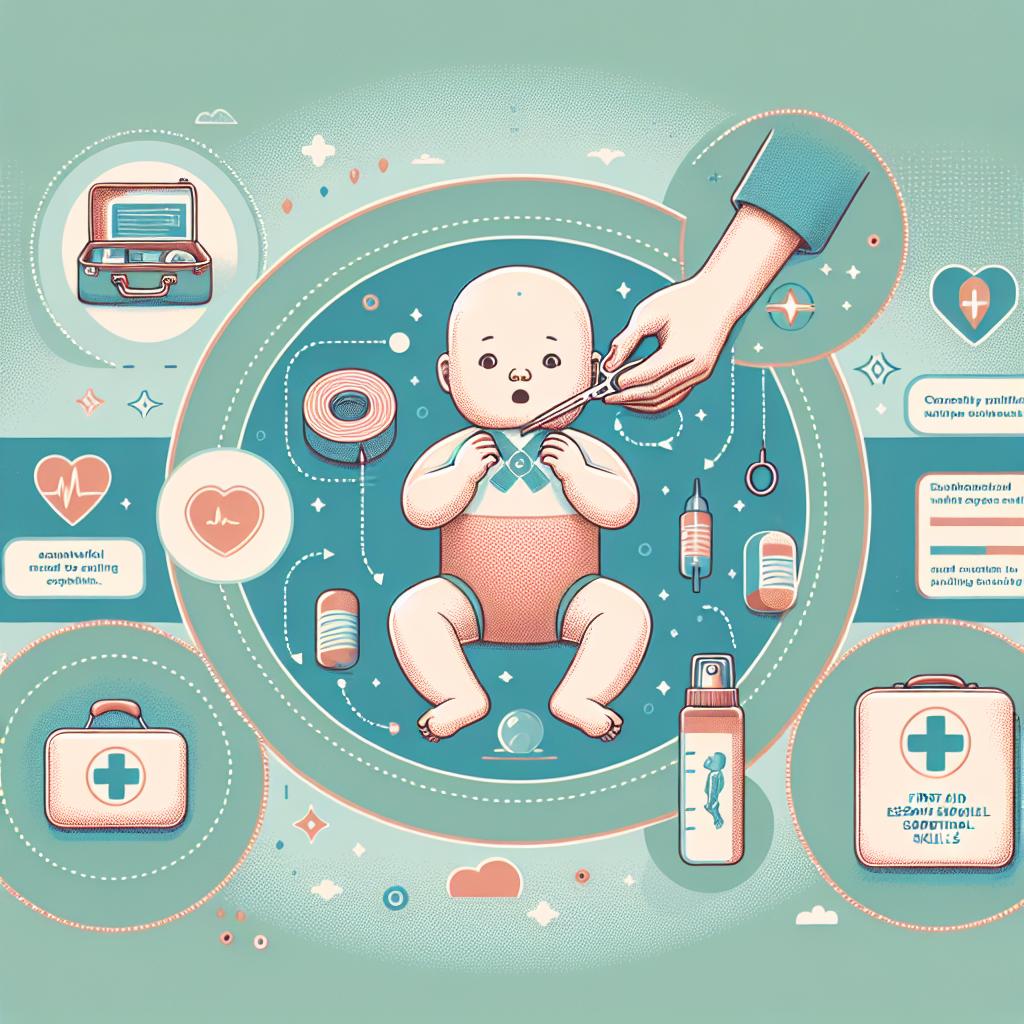Understanding the Basics of First Aid for Babies
Stay Prepared: The Importance of Baby First Aid
Being a parent is a rewarding experience, but it comes with its share of challenges. One of these is ensuring the safety of your child at all times. To mitigate the risks, parents should be equipped with the essential skills necessary for first aid for babies. Having a basic understanding of baby first aid tips can make a significant difference in an emergency situation. This knowledge can be a literal lifesaver until professional medical help arrives.
Baby Safety 101: Never Compromise on Care
Safety should always be the foremost priority when it comes to your baby. Your baby’s safety can be drastically improved by understanding how to respond to medical emergencies. Acquiring these essential skills can help to reduce panic and allow for a better response in emergency situations.
Consider taking a First Aid Course from a reputable organization like the Red Cross. They even provide a specialized course on Lifesaving Skills that every person should know, which can be invaluable in a crisis.
Feeding and Choking: What to Do
- Feeding: When introducing finger foods to your baby, make sure they are safe and easy to consume. Small, hard foods can be choking hazards.
- Choking: Baby first aid tips for a choking child involve carefully performing back blows and chest thrusts. The method varies slightly depending on the age of the child.
Refer to an expert guide on Basic First Aid Procedures at Verywell Health to understand how to handle such situations aptly.
Everyday Communication: Encouraging Baby’s First Words and Responding to Distress
Understanding your child’s communication is vital to realizing when they are in distress. Regular conversation, singing, and play can do wonders for encouraging language development, making it easier to understand their needs and reactions.
Offering Psychological First Aid to Your Child
Sometimes, emergencies may result in psychological distress in children. Parents should know how to offer psychological first aid in such cases, helping the child deal with any trauma or anxiety.
In conclusion, being a parent means always being ready to protect and care for your child. By acquiring these essential skills, you can ensure that you are ready to tackle any emergency that comes your way.
The Procedure for Infant CPR
Cardiopulmonary resuscitation (CPR), is a lifesaving procedure that is crucial to know, especially for parents. When a baby’s heartbeat or breathing has stopped, CPR can help revive them before the professional medical team arrives. To learn the proper method of performing infant CPR, consider taking a course or referring to the trusted guides by the Mayo Clinic.
Road Safety and Car Seat Installations
Accidents can happen even on small trips to a grocery store, hence it is important to install a proper car seat for your baby. Incorrectly installed car seats can lead to serious injuries, even from minor traffic accidents. It’s crucial to know the correct installation process and choose a car seat suitable for your child’s weight and age.
Preventing Falls: Baby Proofing Your Home
Falls and injuries are common as little ones start exploring their environment. This is where baby proofing your home comes in handy. It’s important to remove any potential hazards and ensure that your home is safe for your baby. Here are some tips for baby-proofing your home:
- Protecting sharp furniture corners with safety padding
- Securing loose rugs and eliminating tripping hazards
- Installing safety gates at stairs
- Locking away cleaning supplies and other harmful substances
- Mounting heavy furniture to the wall to prevent it from tipping over
Recognizing Signs of Illness
Observing any signs of illness early can help in prompt treatment and recovery. Some symptoms to watch out for include:
- Consistent high fever
- Difficulty breathing
- Skin rash
- Less wet diapers than usual which may point to dehydration
Always consult your pediatrician if unsure about any symptoms or if baby seems unwell.
Importance of Child-Proofing Electronic Gadgets
In the digital age, it’s impossible to completely limit a child’s interaction with electronic gadgets. Therefore, childproofing our devices is imperative. Ensure that any adult content, harmful games, transactional features, and social media are locked and inaccessible to your child.
Knowing How to Respond to a Choking Baby
Taking immediate action upon noticing choking can prevent a major casualty. The Red Cross’s guidelines provide detailed instructions regarding steps to follow if a baby is choking.
Conclusion
As a parent, ensuring your child’s safety becomes top priority. By being prepared and informed, you can ensure that your child is protected from any potential hazard. Continually educate yourself and stay updated about the latest baby safety tips and recommendations. Remember, the safety of your child is always in your hands.
